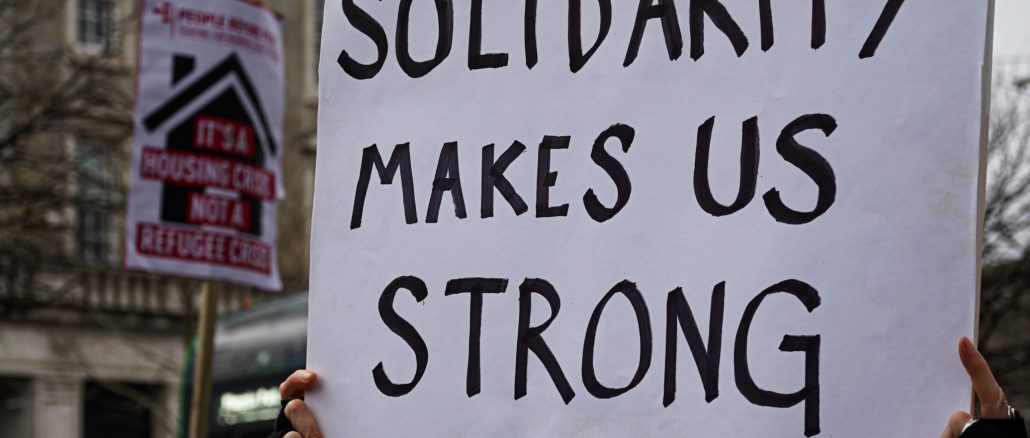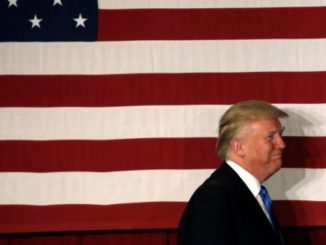
Racism in Ireland has been an issue for quite a long time, with the latest flood in hate crimes happening in 2020.
The effect of racial hate crimes on victims can be devastating. Victims frequently experience physical and mental trauma, as well as feelings of fear and anxiety. What’s more, casualties might encounter social isolation and segregation because of their race or nationality.
“I used to work at the Aviva Stadium. I was called slurs used against my people (Pakistan) on multiple occasions by unhappy customers (he was working at a food kiosk),” said Hammad.
Hammad, was born and raised in Ireland, yet despite having citizenship here, he is still a target of verbal hate crimes. During the interview he said that his initial response was to simply “laugh it off,” but as time goes on, reality sinks in as racial discrimination is still rife in the country.
The most well-known type of racial discrimination is verbal abuse and harassment, which is normally aimed at individuals — like BIPOC (black, indigenous and people of colour) and the Travelling community in Ireland — or towards migrants who have recently entered the country.
Hammad is only one out of many individuals who has encountered bigotry in Ireland. One more type of hate crime happens when individuals are attacked because they are perceived to be “different” than others.
In 2020, Aster, who isn’t his real name, and his friends were racially attacked at Stephen’s Green in Dublin by a group of teenagers. They were told to “go back to China” and their perpetrators as young as 12 kept on orbiting around them with their bicycle scraps.
As they were walking off to get away from the uncomfortable situation, one of the teens took his friend’s hat and escaped with their bicycles. Aster attempted to recover the hat by running after them and during the squabble, he took a video and posted it on Instagram. However, since the assailants were underage, he needed to take the post down. Their quiet break on Stephen’s Green didn’t end up on a good note. “My friend went back to the playground thinking the hat was still there… then she was head locked,” said Aster.
When questioned as to whether individuals saw the incident, he expressed that there were individuals in Stephen’s Green at this point nobody said anything. This kind of issue actually exists in Ireland, where individuals become frozen – bystander effect. As Hammad said, “it’s very sad that people turn the blind eye.”
The Irish government has done whatever it takes to address bigotry, including presenting another regulation that condemns hate crime and hate speech. The law likewise requires public institutions to take steps to prevent and address racism.
There are a number of organisations working to reduce racial hate crimes and foster a more inclusive Irish society. Several of these organisations work to tackle ignorance and promote awareness of various minority communities, while others focus on providing assistance to victims of hate crimes like YARI (Youth Against Racism & Inequality) in Ireland which was established in 2020 because of the enormous uprising in the US against the killing of George Floyd and profound bigotry that exists. The emergence of the Black Lives Matter movement had a powerful impact in terms of standing up against racism.
Myriam Poziat-Marouki, representative from YARI shared her points as far as spreading mindfulness against racism in Ireland and that protests can make an impact:
“I’d say in terms of pushing back on consciousness and making, just making people more aware of racism, that’s a progressive change. And I think certain things that YARI have done in terms of like – we organise the campaign until December 2020 on fighting racism in schools – So again, exposing the realities but also putting forward specific demands of what could be done that had an impact,” said Myriam.
“I’d say after the killing of George Nkencho in Dublin west as well by the Gardai, some of the campaign work that we did to try and cut across the lies from the far right to try and cut across racism to try and explain what actually happened and why George Nkencho shouldn’t have been killed in why the investigation needs to be better that also would have had a certain impact in the community,” she added
Despite these efforts, racism remains a problem in Ireland. A new study discovered that one of every five individuals have encountered racism, with most incidents happening openly in spaces. Furthermore, a report from the Irish Network Against Racism (INAR) saw that as bigoted attacks were the subject of “51 cases in 2020,” which was supposed to be “the highest ever rate” of attacks reported to iReport.ie.
As per the information from (OSCE) Office for Democratic Institutions and Human Rights (ODIHR) in 2016, there were 125 instances of bigot and xenophobic disdain violations recorded. One of them recorded: “A boy of African descent was punched and subjected to racist insults”.
The most recent statistics recorded by An Garda Síochána, 448 hate crimes and hate related (non-crime) incidents were recorded in Ireland in 2021, incidents of racial hate crimes across the country were 44% prevalent mostly coming from the Dublin region.
It is critical to take note that the insights above probably address just the tip of an iceberg since numerous victims decide not to report these crimes. One more significant highlight note is that racial hate crime violations are not restricted to simply ethnic minorities but rather can be aimed at any group.
Calling for action
Breaking institutional racism was referenced during the Stand in opposition to Prejudice occasion on the 17th of November coordinated by the Irish Council for International Students (ICOS). Marjorie Laville Pain, ICOS Programme Officer, said in her speech that having an open discussion is a significant viewpoint in changing individuals’ thoughts on race and racism.
“Realising that racism is embedded in our system and institution, that privilege and benefits exist as a result for this inequality – is also essential in discussing racism. We cannot allow this inequity to persist. Today, we continue this conversation and speak out against racism to increase awareness, empathy, and actually, so that we can all become part of the solution,” said Marjorie.
The predominance of racial discrimination in Ireland is a serious issue that must be addressed. Associations like the Yellow Flag Programme have taken steps to address this problem, including the launching of activities in order to make students aware of “diversity, promoting inclusion and challenging racism.” In turn, students will be aware of how to speak about racism, how to talk to teachers, how students can talk to their peers and report racism.
Sian Long, Public Program Organiser of the Yellow Flag Programme at Irish Traveller Movement shared the purpose behind Yellow Flag in the society. She said that it is critical to have a different strategy on bullying, as bullying does not cover the account of systemic racism and with the anti-racism policy this is a key to cut off institutional racism starting in schools.
“It’s really about embedding interculturalism across the curriculum for us so that it becomes not something that’s just a kind of an afterthought, or neatly packaged into it into one class, that it’s available to all classes to all students…when a school joins Yellow Flag, it’s a lifelong commitment. And it isn’t just a two-year program,” said Sian.

Solidarity March
A large crowd marched through Dublin city centre last month in a show of solidarity for immigrants and asylum seekers. The protest was organised to highlight issues around Ireland’s direct provision system and to call to fight racism.
The Solidarity March was marked by slogans such as “Solidarity makes us strong”
“Diversity not Division,” “Stand up, Fight Back, and “Say it loud, say it clear: Refugees are welcome here” were just a few of the slogans chanted by thousands of people during the Solidarity March last month, on February 18th, 2023. The movement began at 1:30 p.m. in Parnell Square and marched to the Customs House, which was organised by a number of organisations from across Ireland.
A man proudly holds aloft the banner of freedom and equality – ‘woman, life, freedom’ through the streets of Dublin
Rory Hearne, Blezzing Dada, Racgel Coyle, Lucky, Khambule, Salome Mbugua, Sophia Mulvany, Sarah Philipps, Memet Uuldag, Leon Diop, Darragh Adelaide, and Bernadette McAliskey were among those who spoke during the march.
In an interview last December, Memet Uuldag of United Against Racism stated that while Ireland is not immune to racism, he sees “great hope” for Ireland to be free of these struggles.
“There’s hope and there’s much to do and there’s a better Ireland to build collectively with migrants, immigrants, asylum seekers, refugees, black, white or whatever colour you are; men, women or whatever gender you are, it doesn’t matter, it’s a society that we can build,” said Memet.
He believes that campaigns and organisations “play an important role” in developing networks, bringing together diverse groups, cooperating, challenging each other’s assumptions and preconceptions, but also in cultivating society’s capacity to take action, not just react, but also to set the tone.
He advocates that universities and higher education institutions prioritise anti-racism efforts and take them “very seriously,” saying that institutions should proactively engage with local communities and join anti-racism coalitions, such as United Against Racism, committed to eliminating racism in all its forms. By actively participating in these partnerships, universities can help promote inclusiveness and diversity.
“Sometimes we need to react to racism and more importantly, I think we need to be a part of the debate to actually— almost proactively deal with racism rather than wait for a migrant woman or a man or a muslim woman or a traveller family to be attacked.”
Hannah Giron Daygo
Photos by: Hannah Giron Daygo


